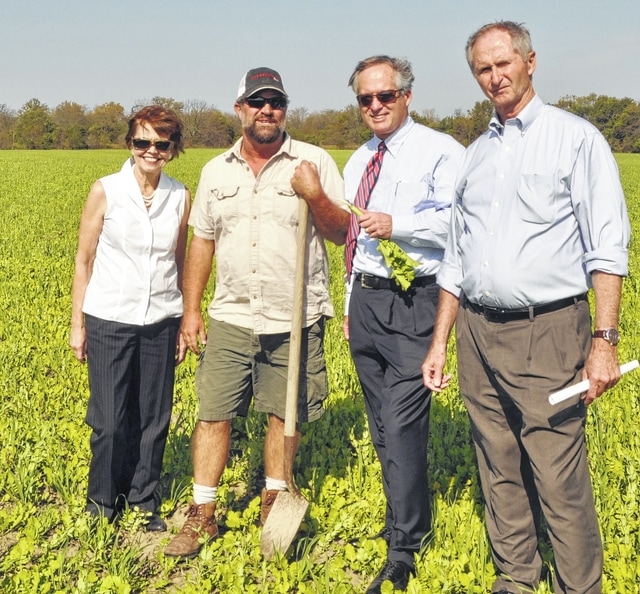
Earlier this week, I had the opportunity to share our conservation programs with several of our public officials on a farm, talking cow manure – the real stuff!
While on a conservation tour, we stopped at the Keith Oman farm where we viewed his manure storage facility. One of the county commissioners asked, “Why do you spend so much money on manure?”
It was a good question. Manure is just a waste product, right? Actually, manure is full of valuable nutrients and can be used to build soil health, if handled properly. If improperly handled, it becomes a pollutant.
As conscientious and good stewards of the land, the Omans invested in a structure that allows them to store the manure when the weather and soil conditions are unfavorable for spreading the manure on their fields. Then when the soil dries and they are able to get on the fields without making ruts, the manure can be spread and used it as fertilizer for the next crop.
The Omans have taken a second step to building the health of their soil — planting cover crops. Cover crops hold nutrients in place, reduce erosion and increase soil organic matter. Mike Oman showed the county officials a very dense growth of vegetation that included rye, oats, vetch, sweet peas and radishes. This combination of grasses and legumes will help aerate the soil, create nitrogen and bring phosphorous up from deep in the soil so that it is more readily available for the next crop. A healthy soil is more productive and beneficial to the ecosystem and improves the farmer’s bottom line.
Along with the use of livestock manure and cover crops, ag producers also improve soil health through no-till farming. I like to think of using livestock manure, cover crops and no-till farming as simply a giant compost project to build soil health out on the land. Combining these three practices gives soil health a boost by adding organic matter to the soil. As the straw bedding in the manure and plant residues break down, the soil organic matter increases. This also enhances the holding capacity of the soil which in turn helps keep the water-soluble phosphorous in the soil for plant uptake rather than running off into the streams and causing additional algae growth.
The day of the tour for our public officials coincided with National Farmers Day. It was nice to feature farmers like the Omans who are striving to produce food and fiber while protecting our natural resources. The Delaware Soil & Water Conservation District salutes all our agricultural producers for their conservation efforts and stewardship.



